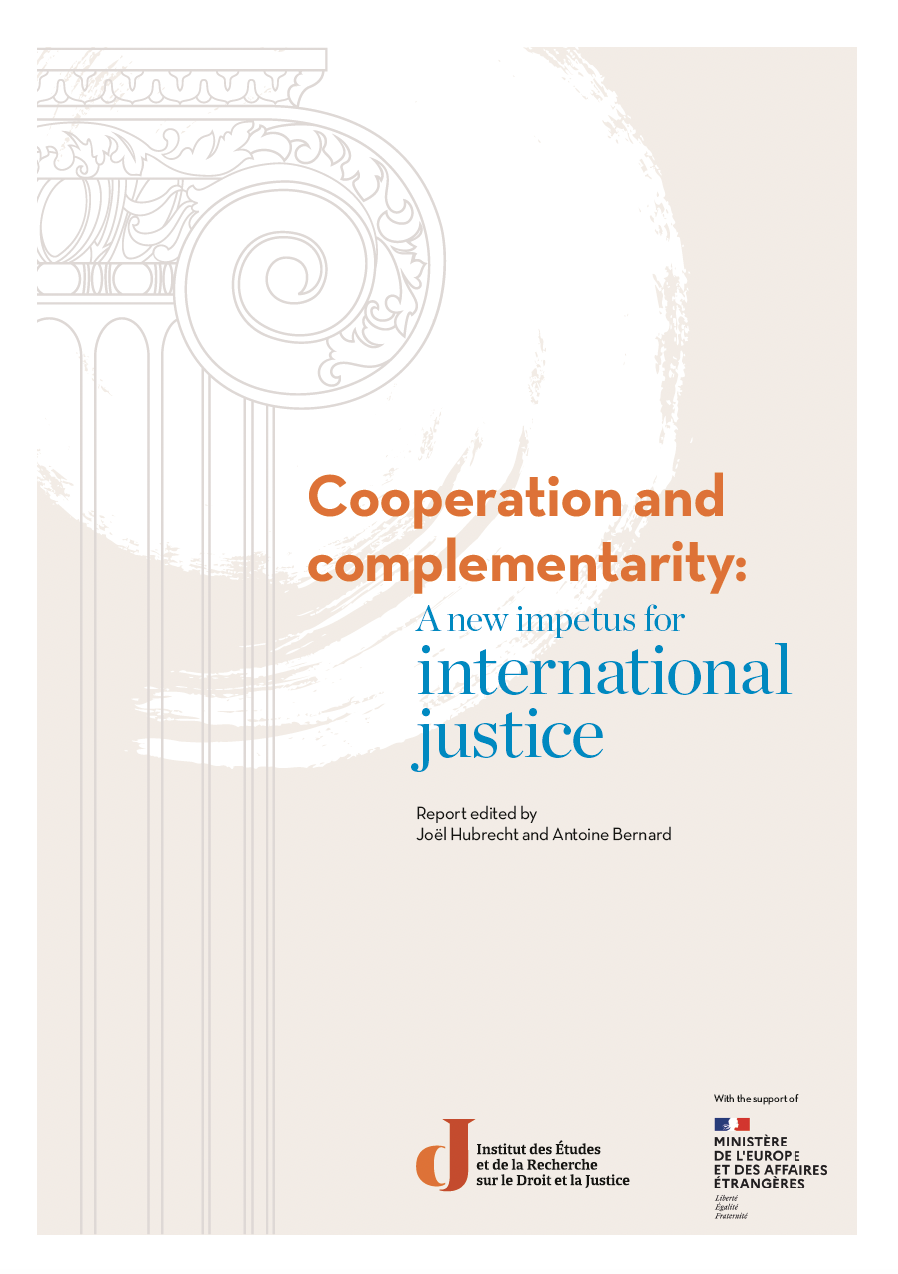For some years now, the development and implementation of complementarity has been viewed as a fundamental way to respond to the disappointing record of the International Criminal Court, as well as to the crisis of the international order and multilateralism. Russia’s invasion of Ukraine on February 24, 2022, and the other international tensions it has exacerbated, as well as the new alliances and transformations that have resulted from it, confirm the relevance of this approach, which, today more than ever, has become the mainspring of a new impetus for international criminal justice.
This document is the result of a reflection led by the Réseau Coopération Complémentarité (Cooperation and Complementarity Network) during a series of discussions conducted throughout 2022. The project was initially conceived in 2021 under the auspices of the Institut des hautes études sur la justice (IHEJ) (Institute of Advanced Studies on Justice) as part of its International Criminal Justice and Transitional Justice programme, led by Joël Hubrecht, currently head of studies and research at the Institut des études et de la recherche sur le droit et la justice (IERDJ) (Institute for Studies and Research on Law and Justice), with the support of Antoine Bernard, director of advocacy and assistance at Reporters Sans Frontières (RSF) (Reporters Without Borders), lecturer at the School of International Affairs at Sciences Po Paris (PSIA), and, at the time of the launch of the reflection group, associate researcher at the IHEJ.
They were commissioned with leading discussions and writing this report. The report was supported and subsidized by the Rights, State Reform, and Fragilities Unit at the Democratic Governance Mission of the French Ministry for Europe and Foreign Affairs (MEAE). During an exploratory phase in 2021, initial contact was made with members and leading figures of a number of jurisdictions in order to ascertain interest in the project, to identify issues for further study within the network, and to test working hypotheses.
